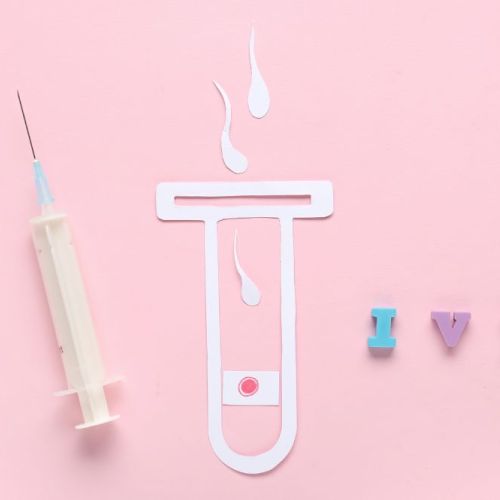Planning for the Future: The Facts on Egg Freezing and Donation

When it comes to planning for one’s reproductive future, women have two major options that differ quite a bit from one another: egg freezing and egg donation. Two different paths depending on what it is you’re looking to accomplish, but important to know about. The process for each is similar, but the question you will have to ask yourself is “what are you hoping to accomplish?” Do you hope to keep your eggs preserved for later in life when you’re ready to start building a family? Do you want to provide a couple that is having difficulty conceiving some hope by giving them one of your eggs while you’re at the prime age? Maybe you’re even interested in both.
While you would want to speak to a medical professional who is a fertility specialist about these procedures, it’s always good to go into your appointment with some basic information about the procedure you may be interested in. If you are a woman in good health and in the prime years for childbirth looking to plan for the future, here are the facts you need to know pertaining to both egg freezing and egg donation.
The process for both
Once you and your doctor confirm that one of these procedures is right for your particular situation and would help you achieve your goals, the process will begin to get you prepared for the procedure. What you need to know is that hormone injections will be involved. This often lasts only a couple weeks. Often patients think this will be a months long procedure, but that’s not true. It’s rare to experience an overwhelmingly negative reaction to hormonal treatment. But you may experience some minimal side effects. Everyone responds differently.
Once your doctor determines that the time is right to retrieve the eggs that have been matured through the hormone treatment process, you’ll come in for the procedure. Note that this is somewhat invasive. It is considered a low-risk procedure, however. Anesthesia will be used. Once the eggs are successfully removed, they will be moved to a laboratory for next steps. If that’s freezing, they will be stored. If it’s for donation, then they will move on in the process of getting matched with a family in need. This process won’t impact your ability to naturally have children afterwards.
Why opt for egg freezing?
More and more women are opting to freeze their eggs and are doing so at younger ages than ever. This leads one to wonder why. If you’re a woman who isn’t currently with a partner that you want to start a family with or you’re in the midst of completing a degree or navigating a career, it’s probably obvious to you why you’d want to freeze your eggs. It’s for peace of mind. It’s so you can feel a bit better knowing you’ll have a chance to have a child of your own even if it’s a bit later in your life and on your own terms.
The vast majority of women who choose to freeze their eggs do so voluntarily. Now is simply not the right time for them and they would prefer to have the option in their later years without running the risk of it being too late. This is completely understandable. But in some instances, you may choose to freeze eggs out of necessity. For example, if you’ve been diagnosed with cancer, the treatments involved could trigger premature menopause. In that instance, you would be unable to naturally have a child. If you’ve received a cancer diagnosis, egg freezing increases your chances of being able to have a child after successful treatment.
What does egg donation entail?
Egg donation is a wonderful way to help a family struggling as they try to have children, but are encountering difficulty. This could mean helping women who would have been good candidates for egg freezing earlier in life, assisting women who have medical conditions that make it impossible or very difficult to have children naturally, or helping a same-sex male couple have a biological child. No matter who ends up getting your eggs, it’s a great way to make a positive impact in some else’s life.
Conclusion
If you’re a woman who is in the biologically prime years of her life to have a child, but you’re not necessarily looking to have one now, there are options available to you as far as planning for your future or helping another family in need. The process is fairly involved, which is why you’ll want to speak with your doctor as soon as possible to see what the next steps are. Contact us today. The team at California Center for Reproductive Help is here to help you achieve your goals when it comes to your future.
Eliran Mor, MD
Reproductive Endocrinologist located in Encino, Valencia & West Hollywood, CA
FAQ
What does a reproductive endocrinologist and infertility specialist do?
Reproductive endocrinology and Infertility is a sub-specialty of Obstetrics and Gynecology. In addition to managing medical and surgical treatment of disorders of the female reproductive tract, reproductive endocrinologist and infertility (REI) specialists undergo additional years of training to provide fertility treatments using assisted reproductive technology (ART) such as in vitro fertilization.
Reproductive endocrinologists receive board certification by the American Board of Obstetrics and Gynecology in both Obstetrics and Gynecology and Reproductive Endocrinology and Infertility.
When should I see an REI specialist?
In general, patients should consider consulting with an REI specialist after one year of trying unsuccessfully to achieve pregnancy. The chance of conceiving every month is around 20%, therefore after a full year of trying approximately 15% of couples will still not have achieved a pregnancy.
However, if a woman is over the age of 35 it would be reasonable to see a fertility specialist earlier, typically after 6 months of trying.
Other candidates to seek earlier treatment are women who have irregular menses, endometriosis, fibroids, polycystic ovary syndrome (PCOS), women who have had 2 or more miscarriages, or problems with the fallopian tubes (prior ectopic pregnancy).
What are the reasons we are having trouble conceiving?
Approximately 1/3 of the time cause for infertility is a female factor, 1/3 of the time a male factor, and the remaining 1/3 a couples’ factor.
At CCRH, we emphasize the importance of establishing a correct diagnosis. Both partners undergo a comprehensive evaluation including a medical history and physical exam.
Furthremore, the woman’s ovarian reserve is assessed with a pelvic ultrasound and a hormonal profile. A hysterosalpingogram (HSG) will confirm fallopian tube patency and the uterine cavity is free of intracavitary lesions. A semen analysis is also obtained to evaluate for concentration, motility, and morphology of the sperm.
Additional work up is then individualized to direct the best possible treatment option for each couple.
What is IVF? What is the process like?
In vitro fertilization (IVF) is the process that involves fertilization of an egg outside of a woman’s body.
The process starts with fertility drugs prescribed to help stimulate egg development. In your natural cycle, your body is only able to grow one dominant egg, but with stimulation medication we can recruit multiple eggs to continue to grow. After about 8-10 days of stimulation, the eggs are surgically retrieved and then fertilized with sperm in a specialized laboratory. Fertilized eggs are then cultured under a strictly controlled environment within specialized incubators in the IVF laboratory for 3-5 days while they develop as embryos. Finally, embryos (or an embryo) are transferred into the uterine cavity for implantation.
Should I have IVF?
Before deciding if IVF is the right choice, it’s important to sit down with an REI specialist to discuss available treatment options. For some people, other methods such as fertility drugs, intrauterine insemination (IUI) may be the best first choice treatment. At CCRH, we believe each individual couple is unique and not everyone needs IVF.
Is the IVF procedure painful?
While not painful, the fertility medications may some side effects including headaches, hot flashes, mood swings, and bloating. The injection sites may also bruise.
Will IVF guarantee a baby?
Unfortunately, no. Many people think once they start IVF it’s a matter of time that they will be pregnant and have a baby. But according to national statistics per the Society of Assisted Reproduction (SART), on average 40% of assisted reproduction cycles achieve live births in women under age 35. The chances of success then continue to decrease with advancing age.
At CCRH, we employ only evidence-based interventions to ensure patient safety and optimal outcome. While we cannot guarantee a baby, we guarantee that you will receive the best, most advanced, personalized care to help you maximize your chance of a baby.
What is the success rate for IVF?
The average IVF success rate (success measured in live birth rate) using one’s own eggs begins to drop around age 35 and then rapidly after age 40. This is due to the decline in egg quantity and egg quality as a woman ages.
Our clinic’s success rate consistently beats the national average year after year.
Do insurance plans cover infertility treatment? How much does IVF cost?
Individual insurance plans often do not have any coverage for infertility treatments. If you have a group plan, you can call members services to see if they have coverage for infertility (including consultation/workup and IVF).
After your consultation with our REI specialist, one of our dedicated account managers with sit with you to go over the cost of treatment.




